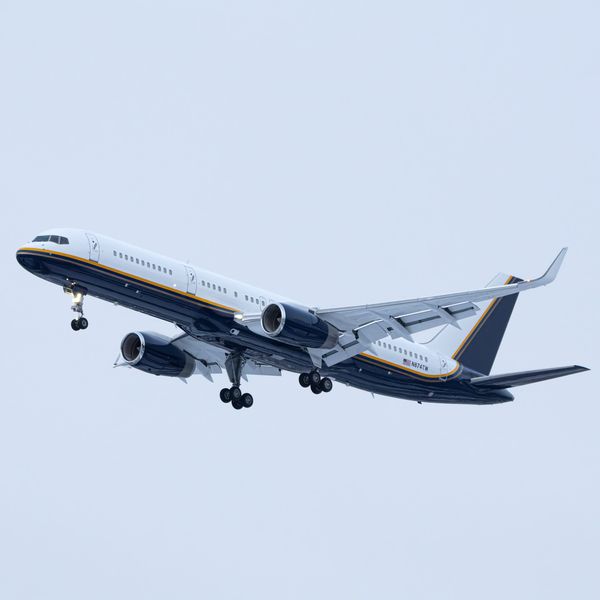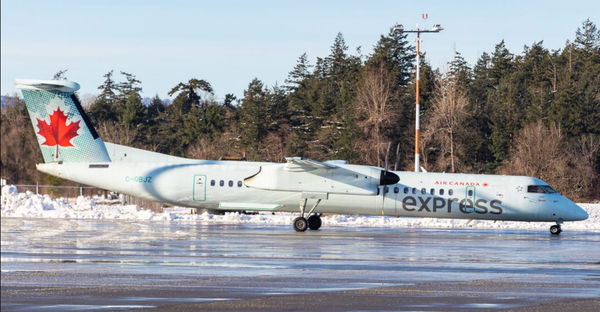Boeing, the US Aerospace giant, announced severe spending reductions on Monday (September 16, 2024) in response to a factory worker strike in the northwestern United States.
The company is considering furloughs and has implemented a hiring freeze to preserve cash during this challenging period.
Boeing Stops Hiring

Chief Financial Officer Brian West addressed employees, stating, "This strike jeopardizes our recovery significantly, forcing us to take necessary actions to preserve cash and safeguard our shared future."
The company's financial situation has become increasingly precarious due to the ongoing industrial action.
The strike, involving over 30,000 workers, began on Friday after Washington State and Oregon employees overwhelmingly rejected a new four-year contract offer.
Despite Boeing describing the proposal as "historic" and union leaders recommending its acceptance, workers voted against the deal, which promised a 25% pay increase over four years and improved terms and conditions.
Boeing's immediate cost-cutting measures include a freeze on hiring, substantial reductions in supplier spending, and a ban on non-essential and premium-class travel, even for senior executives.

These actions aim to mitigate the financial impact of the strike, which executives warn will exacerbate the company's already vulnerable economic position.
Negotiations between Boeing and the striking factory workers are set to resume on Tuesday under the guidance of a federal mediator, as announced by the union.
Complete Production Halt
Boeing's production lines for the 737 MAX, 777, and 767 freighter have halted due to widespread worker walkouts. The aviation giant has instructed suppliers to cease shipments of most parts for these aircraft models, signaling a significant disruption in its manufacturing process.
To mitigate financial losses, Boeing has implemented stringent cost-cutting measures. The company has suspended non-essential capital spending and frozen expenditures on consultants. These actions aim to conserve resources during the ongoing labor dispute.
Boeing, which employs over 170,000 people globally with a majority based in the US, is contemplating temporary furloughs for employees across various levels, including managers and executives. This consideration underscores the strike's severe impact on the company's operations.

The current strike echoes a similar event in 2008, which lasted approximately eight weeks. While Boeing acknowledges that the strike's impact will depend on its duration, analysts project potential losses in billions of dollars if the standoff extends for several weeks.
Major credit rating agencies have issued warnings about a possible downgrade of Boeing's credit rating. Such a downgrade would increase the company's borrowing costs, further straining its financial position.
This labor dispute compounds Boeing's existing challenges. The company has been grappling with historic losses and has slowed production in response to quality concerns in its manufacturing processes.
LOT Polish Airlines Debuts New Boeing 737 MAX 8 Cabin » NTSB Scrutinizes FAA NOTAM Logic Following Fatal MD 530F Canyon Crash » Starlux Takes Delivery of First A350-1000 for US East Coast Push »
Comments (1)
 http://boyarka-inform.com/
Hi there! This is kind of off topic but I need some advice from an established blog.
Is it very hard to set up your own blog? I'm not very techincal but I can figure things
out pretty quick. I'm thinking about creating my own but I'm not sure whete
to start. Do you have anyy tips or suggestions?
Many thanks http://boyarka-inform.com/
http://boyarka-inform.com/
Hi there! This is kind of off topic but I need some advice from an established blog.
Is it very hard to set up your own blog? I'm not very techincal but I can figure things
out pretty quick. I'm thinking about creating my own but I'm not sure whete
to start. Do you have anyy tips or suggestions?
Many thanks http://boyarka-inform.com/
Add Your Comment
SHARE
TAGS
NEWS BoeingBoeing StrikeBoeing NewsRECENTLY PUBLISHED
 This Week in Aviation: The 10 Stories That Mattered Most
From major airline developments to aircraft updates and industry shifts, this weekly recap highlights the ten most-read aviation stories from the week of January 04.
INFORMATIONAL
READ MORE »
This Week in Aviation: The 10 Stories That Mattered Most
From major airline developments to aircraft updates and industry shifts, this weekly recap highlights the ten most-read aviation stories from the week of January 04.
INFORMATIONAL
READ MORE »
 NTSB Scrutinizes FAA NOTAM Logic Following Fatal MD 530F Canyon Crash
One week after a private helicopter plummeted into the rugged depths of Telegraph Canyon, the aviation community is reeling not only from the loss of four lives but from the glaring systemic failures it has unearthed.
NEWS
READ MORE »
NTSB Scrutinizes FAA NOTAM Logic Following Fatal MD 530F Canyon Crash
One week after a private helicopter plummeted into the rugged depths of Telegraph Canyon, the aviation community is reeling not only from the loss of four lives but from the glaring systemic failures it has unearthed.
NEWS
READ MORE »
 Air Canada Doubles Down on Regional Strength with Major PAL Airlines Expansion
In a strategic move to fortify its presence in Eastern Canada, Air Canada has officially announced its intent to significantly expand and extend its commercial partnership with PAL Airlines. As of January 8, 2026, the two carriers have signed a Letter of Intent (LOI) that not only secures regional connectivity for the next decade but also introduces a substantial fleet expansion to meet rising demand in Québec and the Maritimes.
NEWS
READ MORE »
Air Canada Doubles Down on Regional Strength with Major PAL Airlines Expansion
In a strategic move to fortify its presence in Eastern Canada, Air Canada has officially announced its intent to significantly expand and extend its commercial partnership with PAL Airlines. As of January 8, 2026, the two carriers have signed a Letter of Intent (LOI) that not only secures regional connectivity for the next decade but also introduces a substantial fleet expansion to meet rising demand in Québec and the Maritimes.
NEWS
READ MORE »



